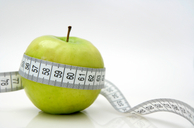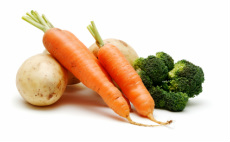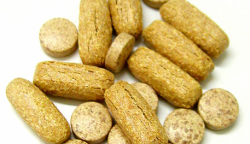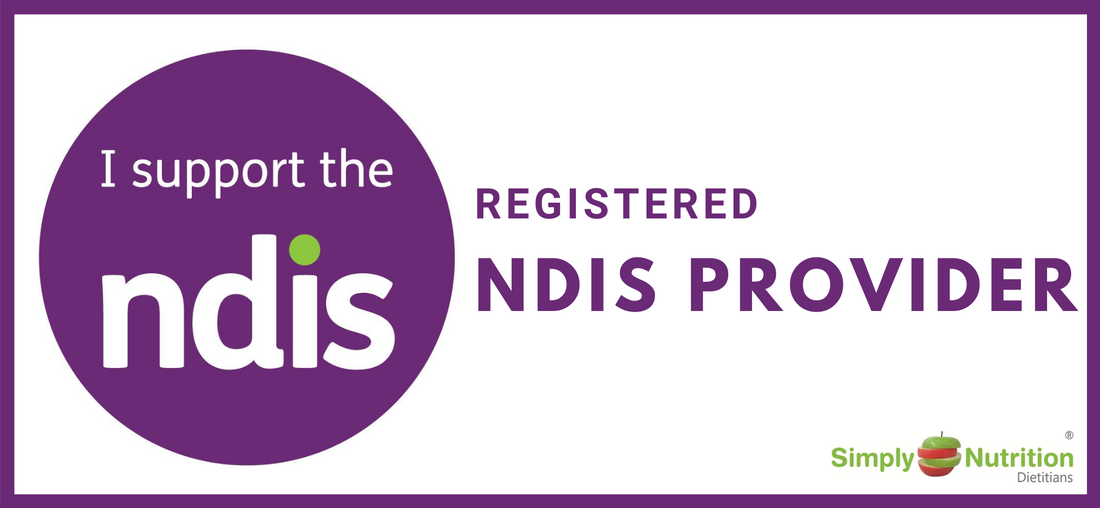 Is a dietitian and nutritionist the same thing? The main difference between a dietitian and a nutritionist is that a dietitian has undertaken complex and extensive studies under supervision involving clinical nutrition, human nutrition, food service management and medical nutrition therapy.1 As a result of their substantial studies, a dietitian is considered a dietitian and a nutritionist, however a nutritionist without a degree in dietetics cannot practice as a dietitian.1 Does a dietitian only help with weight loss? No, a dietitian is trained in many areas of human nutrition and assists people in understanding the relationship between diet and disease. A dietitian can provide you advice on a wide range of topics including but not limited to:
Do dietitians put people on ‘Diets’? No, a dietitian helps you to implement healthy lifestyle choices and works with you to ensure their recommendations fit in with your likes/dislikes and more importantly your life!! Is a dietitian going to ask me to make a lot of changes all at once? No, a dietitian works with you to make a series of small changes over a period of time. They may even ask you to do only 1 thing per week!! It is important to make sure you tell the dietitian if you are having trouble implementing a change as they can provide you with the support to make healthy choices easier choices. Do all dietitians have a perfect diet, free from all unhealthy foods? No, they still have taste buds!! The reason most dietitians have chosen their profession is because they have a love for food! They believe in moderation and incorporating a wide variety of foods into the diet (yes including chocolate and wine!) along with an active lifestyle. References:
1. Dietitians Association of Australia. Becoming a Dietitian. 2010. [cited 2011 January 19] Available from: http://www.daa.asn.au/index.asp?pageID=2145833487
0 Comments
Many people take vitamin and mineral supplements everyday – in fact Australians spend $500 million on dietary supplements annually – most of which is on vitamin supplements. But just because they are popular does that necessarily mean they are useful? And should we all be topping up our diets a little with a pill here and there for optimal health?
What do they actually do? Our body needs over 50 different nutrients for good health. Vitamins are essential for many of the chemical reactions that occur in our bodies, and minerals (which include iron, calcium and zinc) affect our health through their roles in cell growth and repair, and nerve and muscle function. Some people are under the false impression that taking vitamin supplements will make up for an unhealthy lifestyle by reversing tiredness or stress, or that they can prevent or cure certain illnesses. For example, some think that Vitamin C prevents or cures the common cold, however research has shown that this is not the case. Further, popping a vitamin pill will not give you an energy boost if you are feeling tired or run down – we get energy from calories which are found in carbohydrates, fat and protein – vitamins cannot supply us with energy, and no vitamin can make up for a lack of sleep or low levels of physical activity. Vitamins are needed for our bodies to work effectively, however contrary to popular belief, we CAN get enough vitamins through food alone. Eating a wide variety of healthy foods each day will ensure an adequate intake of vitamins and minerals for most people. There are some exceptions, as some population groups (which may include pregnant women, adolescents and vegetarians) have higher requirements for certain vitamins and minerals. Are the vitamins in supplements more effective than those we get from our food? The short answer – no. Research indicates that vitamins in pills just don’t seem to do as good a job as those we get from our food. The reasons for this are not exactly clear. One thing we do know is that certain components of food do not have the same effect in the body when they are taken on their own (in a supplement) compared to when they are taken as food (which is a combination of vitamins, minerals, phytochemicals, antioxidants and fibre working together). While supplements can provide us with vitamins, minerals and antioxidants in isolation; we need food to give us fibre and our essential macronutrients – carbohydrate, protein and fat. For most people, it is best to get the vitamins our bodies need from eating a healthy, well-balanced diet rather than by taking supplements. While taking a vitamin and mineral supplement to ‘top up’ in case your diet is less than perfect may not do any damage, supplements should not be used as a substitute for a healthy balanced diet; nor can they reverse the effects of eating unhealthy foods. But there is no harm in taking them, right? Actually there may be. Fat soluble vitamins (Vitamin A, D, E and K) are stored in the liver and other cells of the body, which means they can build up to dangerous levels. For example, Vitamin A toxicity can lead to liver damage and Vitamin D toxicity can lead to calcification of soft tissues. While the water soluble vitamins (such as B Vitamins and Vitamin C) are not stored in the body (making toxicity unlikely), you can certainly overdose on these seemingly harmless substances. For example, Vitamin B6 toxicity can lead to nerve damage and high doses of Vitamin C can result in diarrhoea. An excessive intake of mineral supplements can also lead to undesirable health consequences. Excessive doses of iron can lead to gastrointestinal issues and at very high levels can even lead to coma and death. Large amounts of calcium or zinc can inhibit the absorption of other important nutrients. As such, very large doses of certain vitamins and minerals can be harmful, so it is always best to seek medical advice before taking any high-dose supplement. If supplements are used, your intake should not exceed the recommended dietary intake (RDI) (see the following link for further information about the RDI’s: http://daa.asn.au/for-the-public/smart-eating-for-you/nutrition-a-z/nutrient-reference-values-nrvs/). So, do we need supplements in our diets? For certain population groups (such as people with a vitamin/mineral deficiency) or people following a certain diet (such as a vegetarian diet), vitamin and mineral supplements may be necessary to ensure an adequate intake of all micro-nutrients; however, for the general population, the best way to ensure you are meeting your nutritional requirements is a well-balanced diet consisting of plenty of vegetables and wholegrains, fruit, low fat dairy and lean meat or meat alternatives. © Simply Nutrition Dietitians Product Claims
Common claims listed on food labels include cholesterol free, lite/light, reduced fat/ sugar/ salt, low fat, very low fat, no added sugar, low joule/diet, high fibre and The Heart Foundation Tick. It is important to understand what the claim means. Some of the most common are explained below.
Lite/light doesn't necessarily mean a product is low in fat; it may instead be referring to the colour, flavour or texture of the food. Such as extra ‘light’ olive oil contains the same fat per 100g as normal olive oil. A low fat product can only be labelled as such if it contains 10g or less, of total fat per 100g, while ‘very low fat’ products cannot contain more than 3g of total fat per 100g. Diet/ low joule products contain artificial sweeteners to replace all or some of the sugar that would normally be used. While the Heart Foundation Tick can be found on many products that are considered healthier choices, not all healthy foods have the tick on their label. This is because food companies apply for the tick, and so some foods that would qualify for the tick may not apply to display it on their label. The Heart Foundation have very strict guidelines and food companies must show continual compliance with these guidelines. If something has the claim cholesterol free it does not necessarily mean it is low in fat. Cholesterol is only present in animal fats and also does not have a great effect on serum cholesterol levels compared with saturated and trans fats. If a food is listed as Gluten free by law in Australia it must be gluten free. Do you need help with deciphering product claims and food labels? A Simply Nutrition Dietitian can provide you with this information in an individual consultation at one of our clinics. Alternatively, why not consider one of our supermarket tours where one of our dietitians can guide you around the shopping centre. If you would like more information on how we can assist you please visit the Contact Us section of this website.  When winter is upon us most enter into it saying “I’m going maintain my healthily eating habits this time...” but with the colder weather and earlier nights most people find themselves resorting back to those comfort foods and before they know it the winter period has again derailed their healthy intentions! With spring just around the corner it’s time to get back on track! Here are some helpful hints: 1. Remove all calorie dense “extra” foods from your diet such as biscuits, chocolate, lollies, cream, hot chips and cooked deserts (i.e apple pies). 2. Increase exercise- aim for 30mins of exercise most days. 3. Find social activities to do with friends that don’t involve eating such as going for a walk rather than a coffee3 and cake. 4. Reduce alcohol intake - Remember that: 200mL of red/white wine or 355mL of full strength beer are a 30MIN WALK! - Replace with lower calorie drinks such as soda/tonic water, diet soft drink/cordial, unflavoured mineral water or vegetable juice. 5. Reduce portion sizes - Use a smaller plate and eat slowly 6. Break the eating out cycle - Most meals should be prepared and eaten at home as they’ll have more control over the portions and how the food is prepared. 7. Have a plan - Keep a food diary for 2 weeks. It can be a real eye opener to what and how much you are eating. - Set realistic goals especially if trying to lose weight. Healthy weight loss is only 0.5kg and 0.5cm per week. Do you need assistance to get back on track for this Spring and Summer season. Talk to a Simply Nutrition Dietitian today and find out how we can help you. (Click Here To Contact Us) A Simply Nutrition Dietitian can assist with a variety of solutions for chronic health conditions. Check this article out which was published by the Dietitians Association of Australia. If you have any questions or would like to know where on the Sunshine Coast we operate from visit - http://www.simplynutritiondietitians.com.au/contact-us.html
Check out this article published by Go Grains. It provides some great information on what you need to know about carbohydrates. Are carbohydrates fattening? - Carbs. in a healthy diet
|
Categories
All
Archives
October 2017
|
Ph: 1300 380 694 |
Fx: 07 3547 8449 |
Copyright © 2010-2024 - Simply Health Group t/a Simply Nutrition Dietitians & Simply Engage Occupational Therapy
Sunshine Coast | Caboolture | Brisbane | Gympie | Ipswich | Australia
Sunshine Coast | Caboolture | Brisbane | Gympie | Ipswich | Australia




 RSS Feed
RSS Feed
